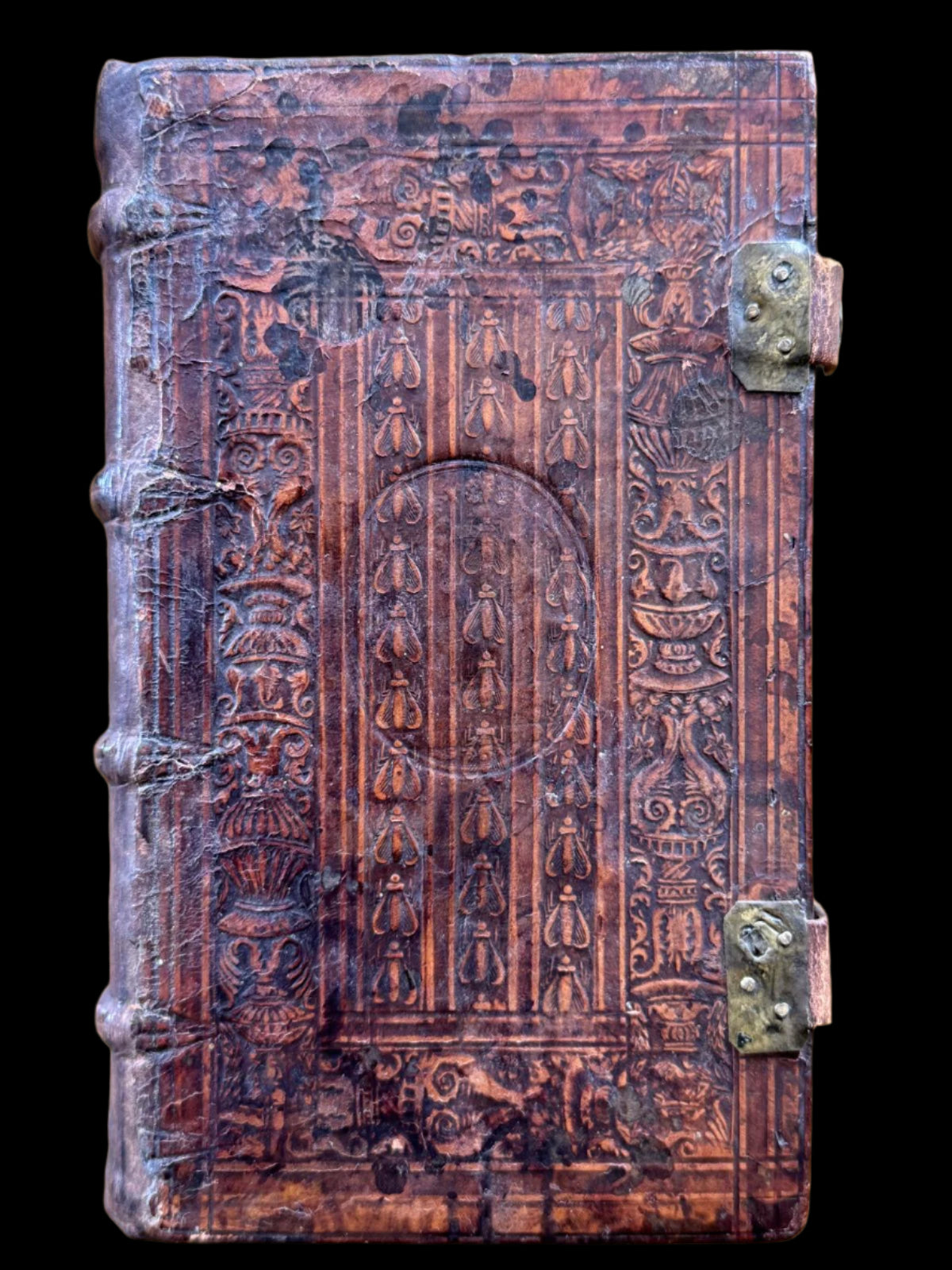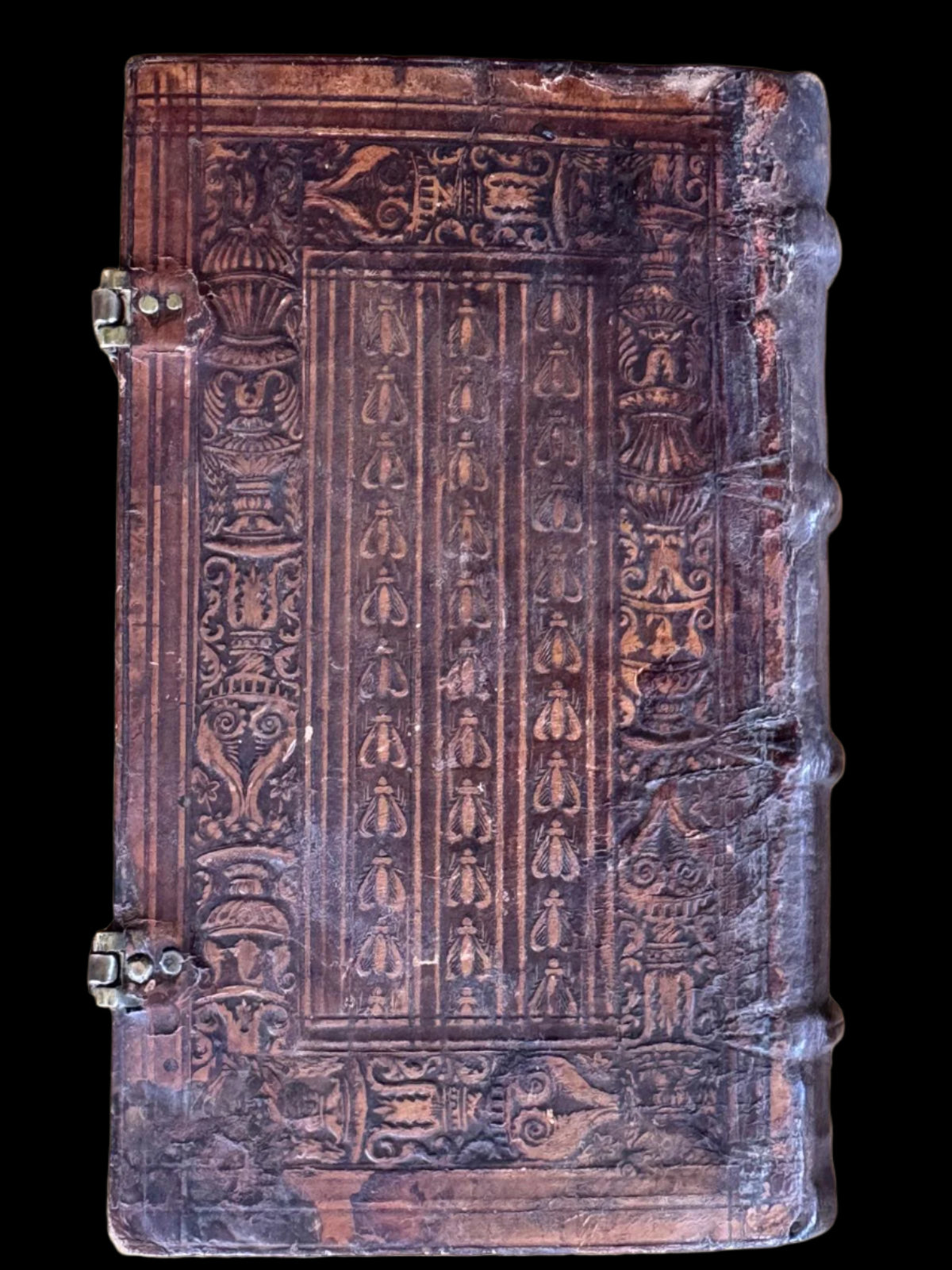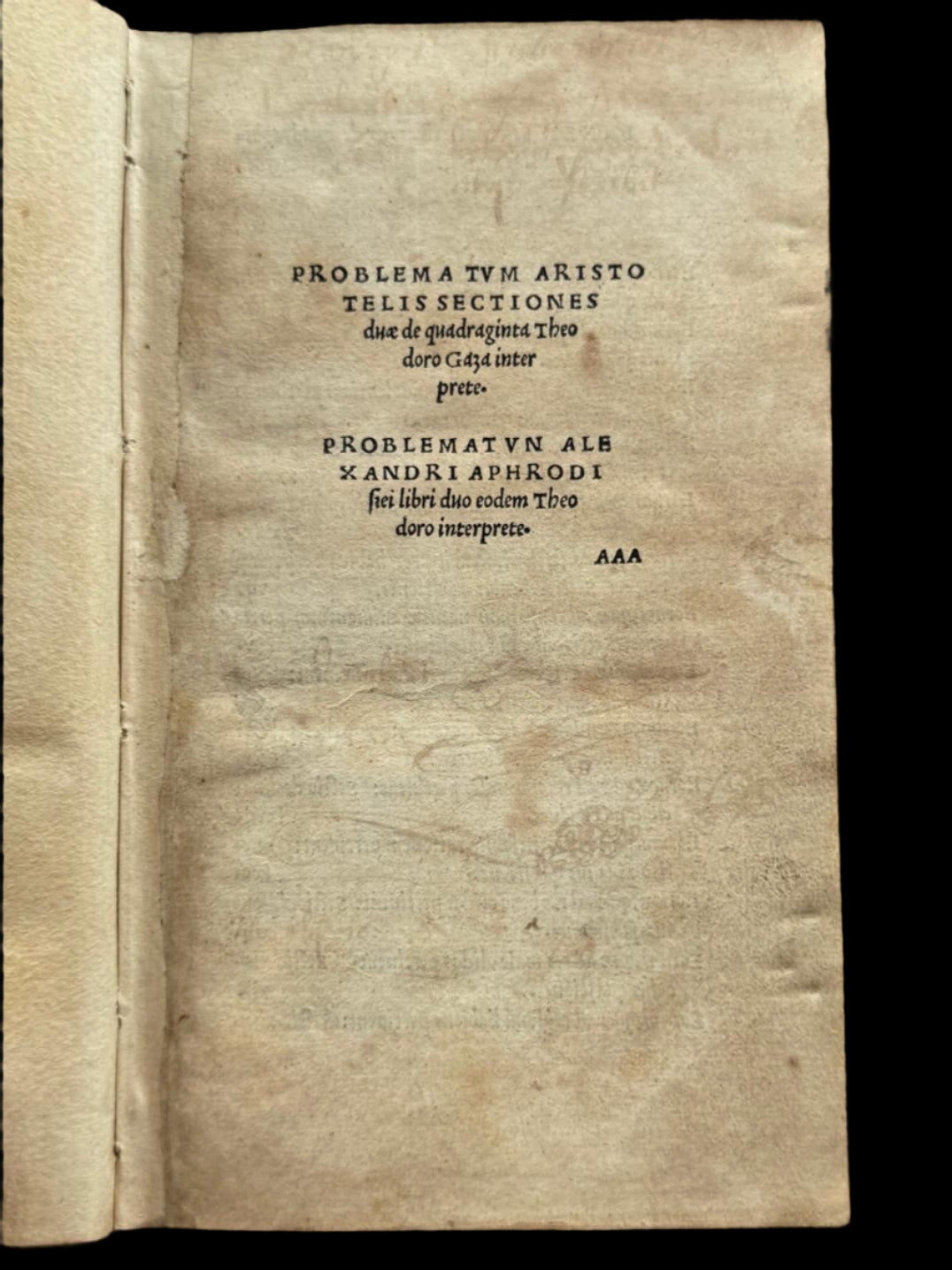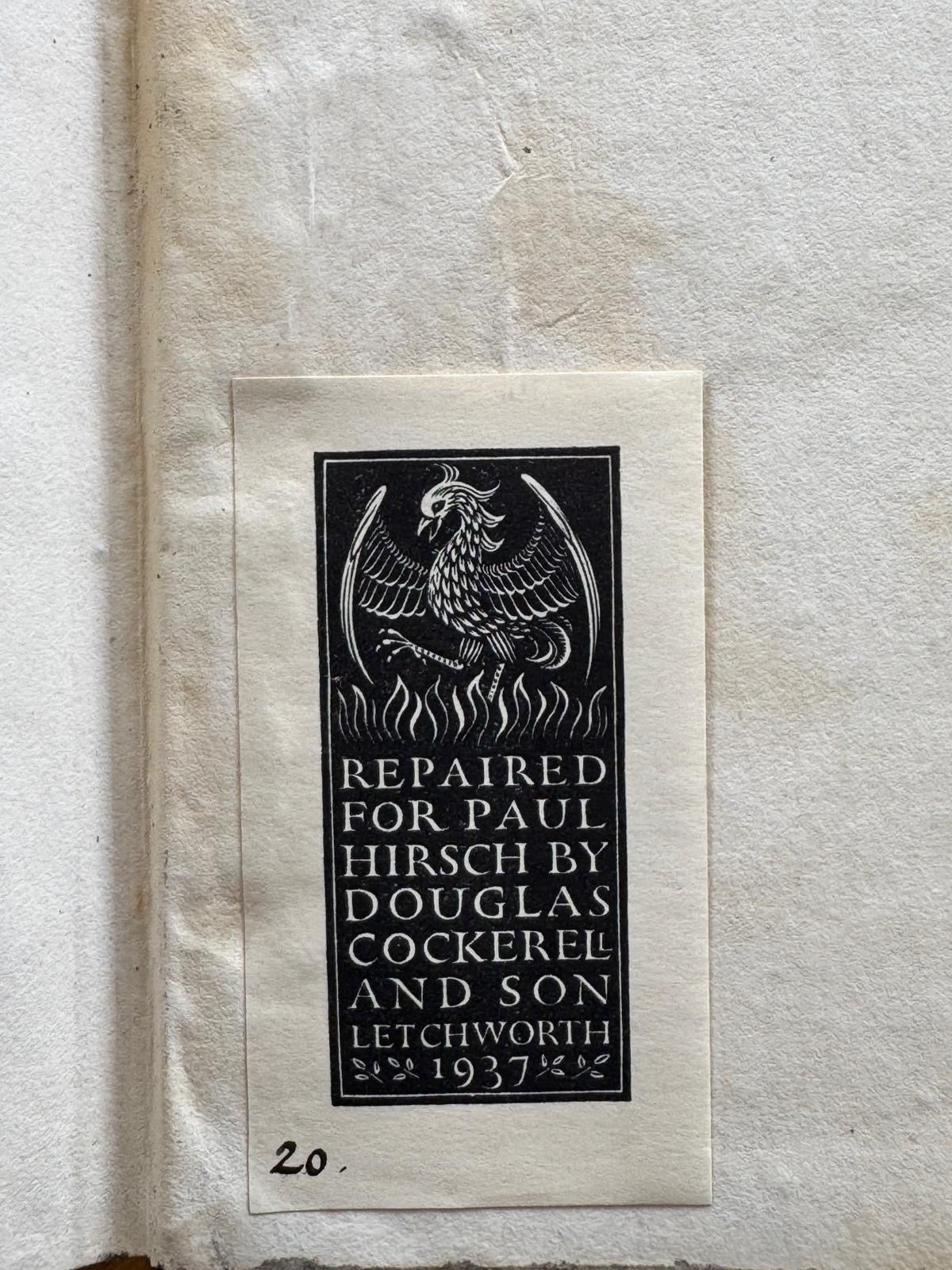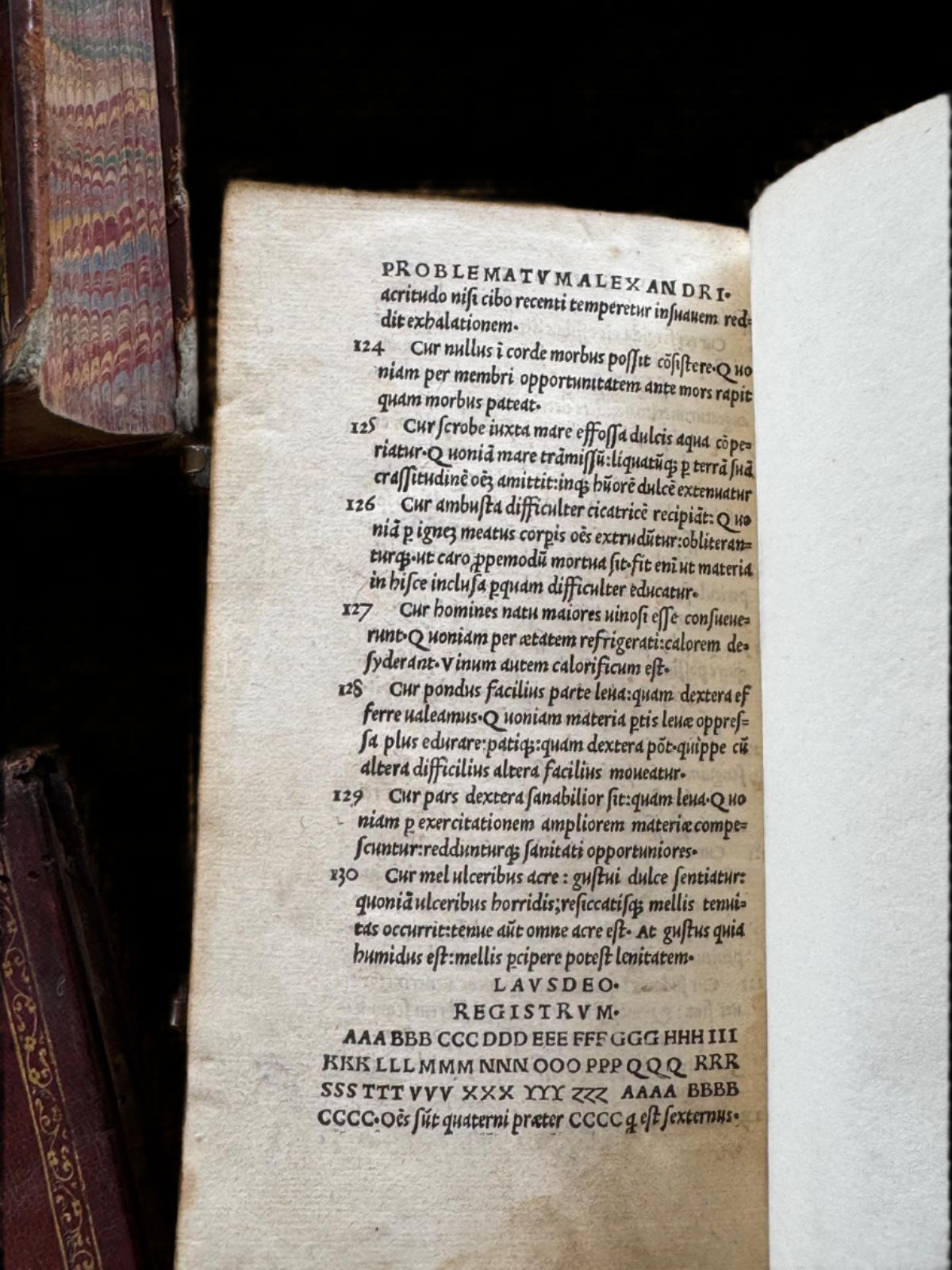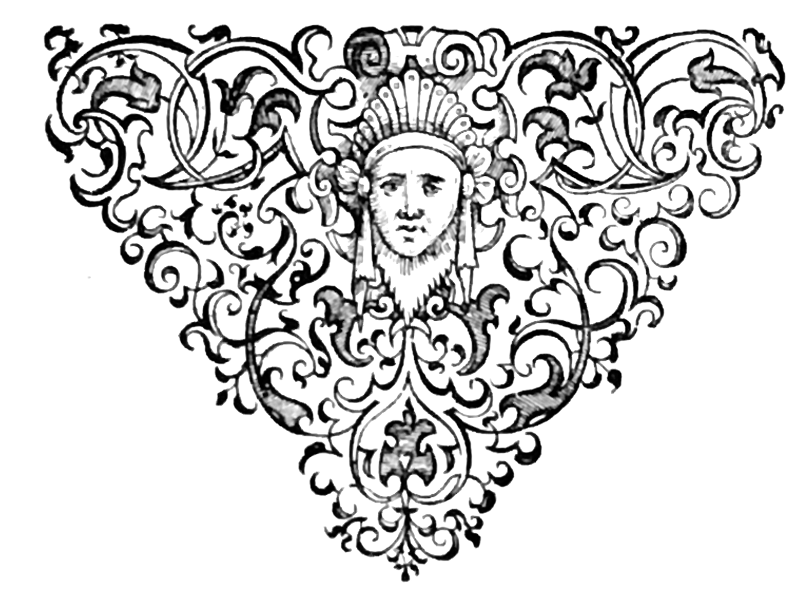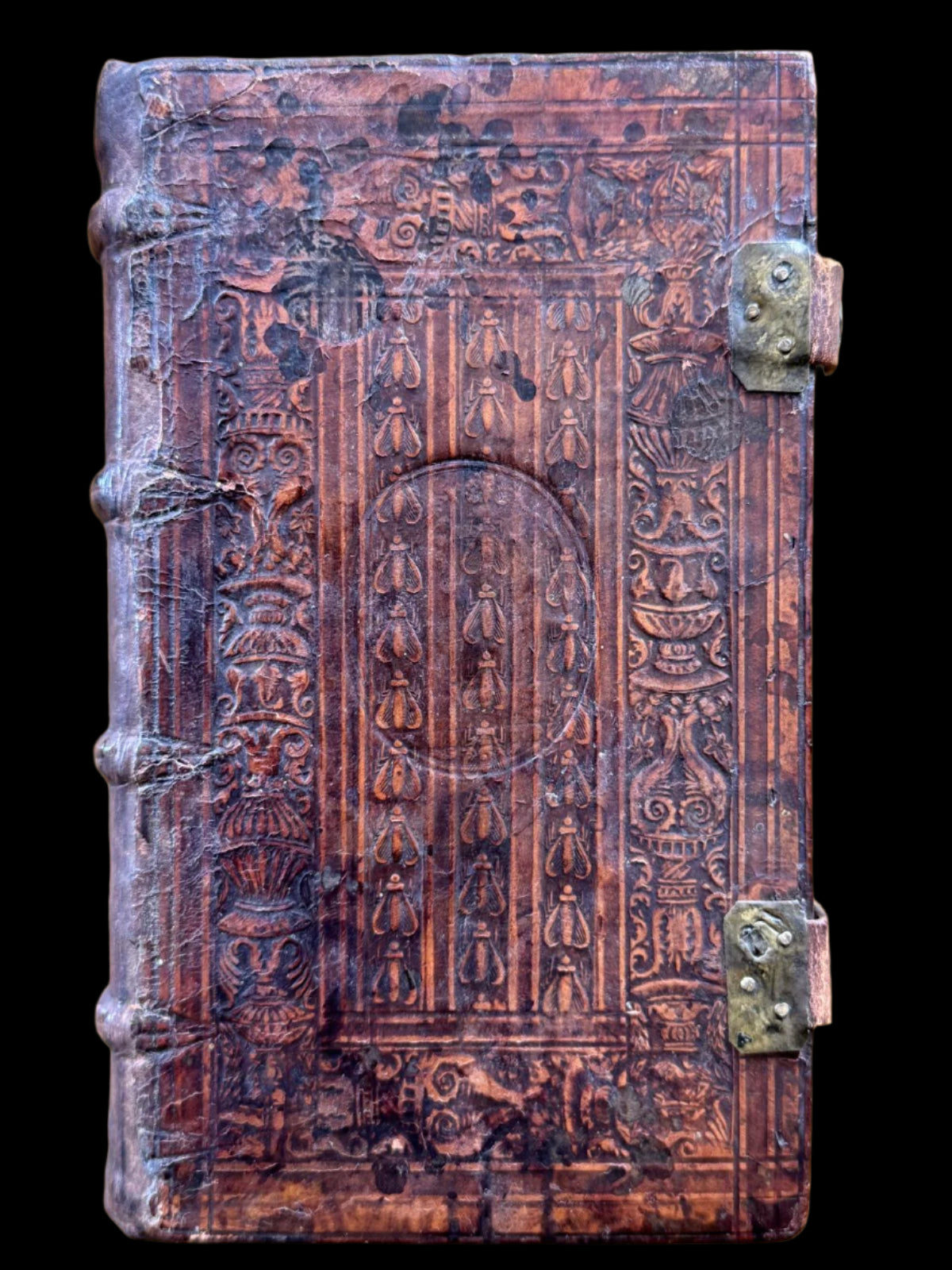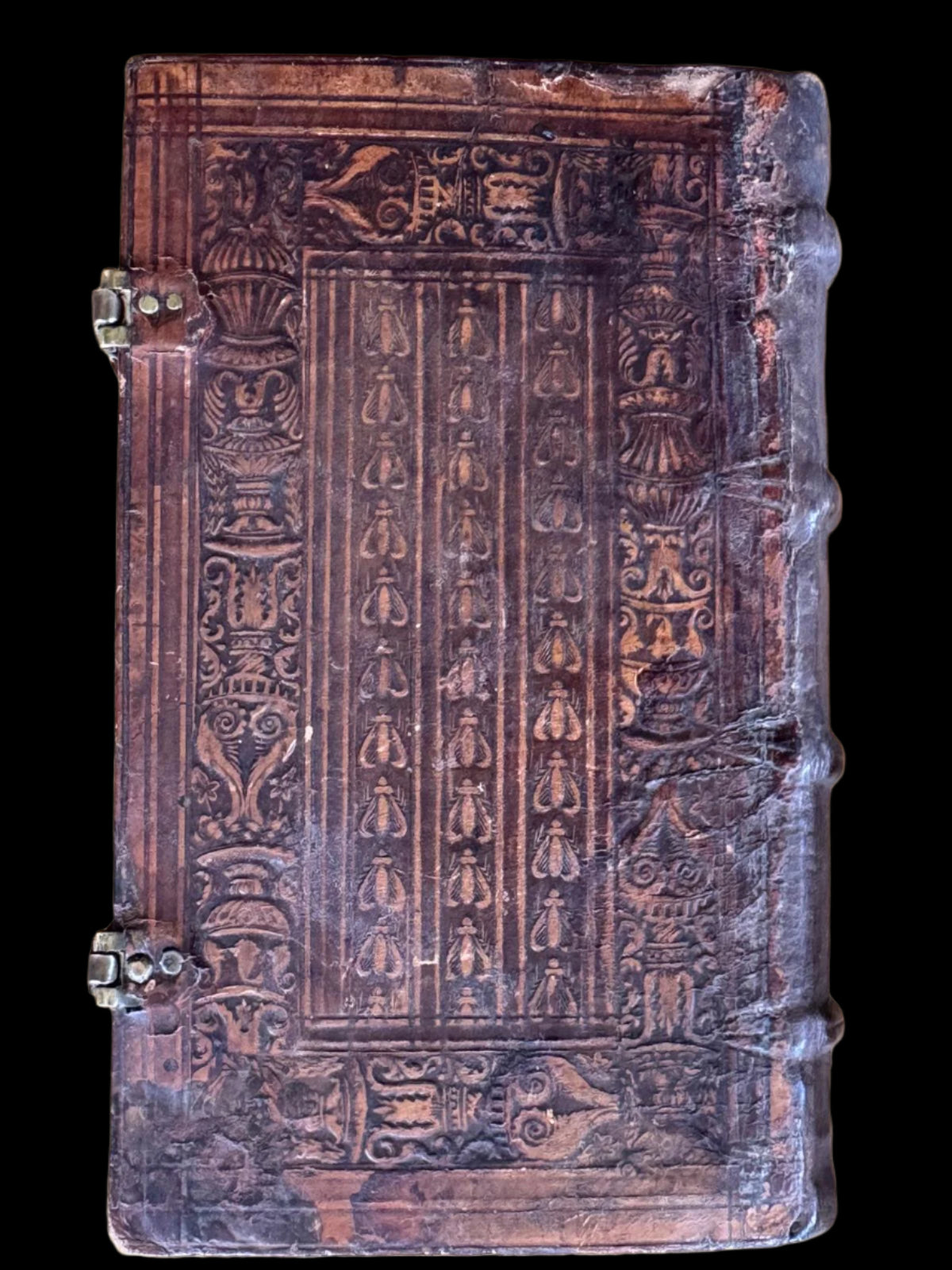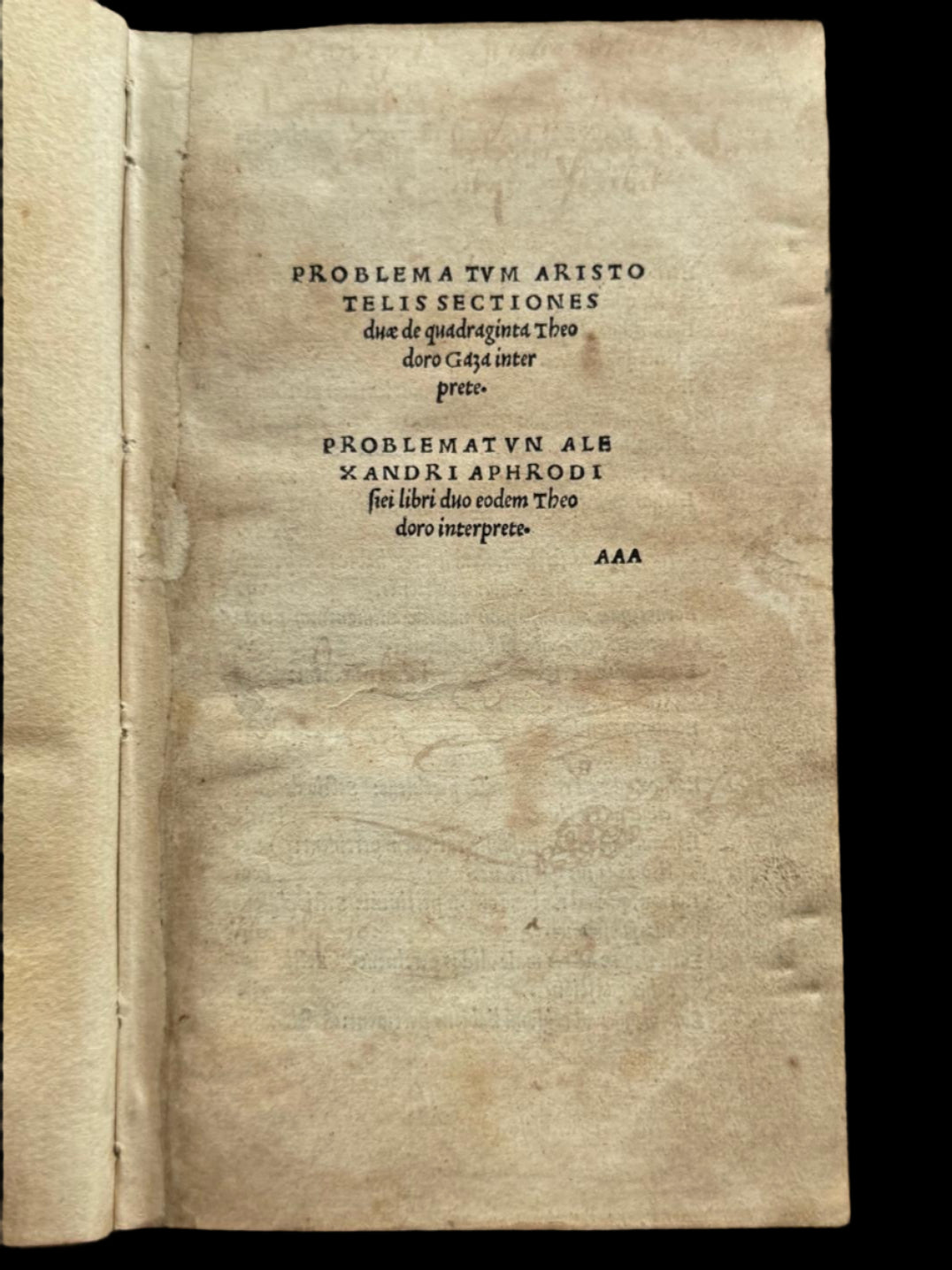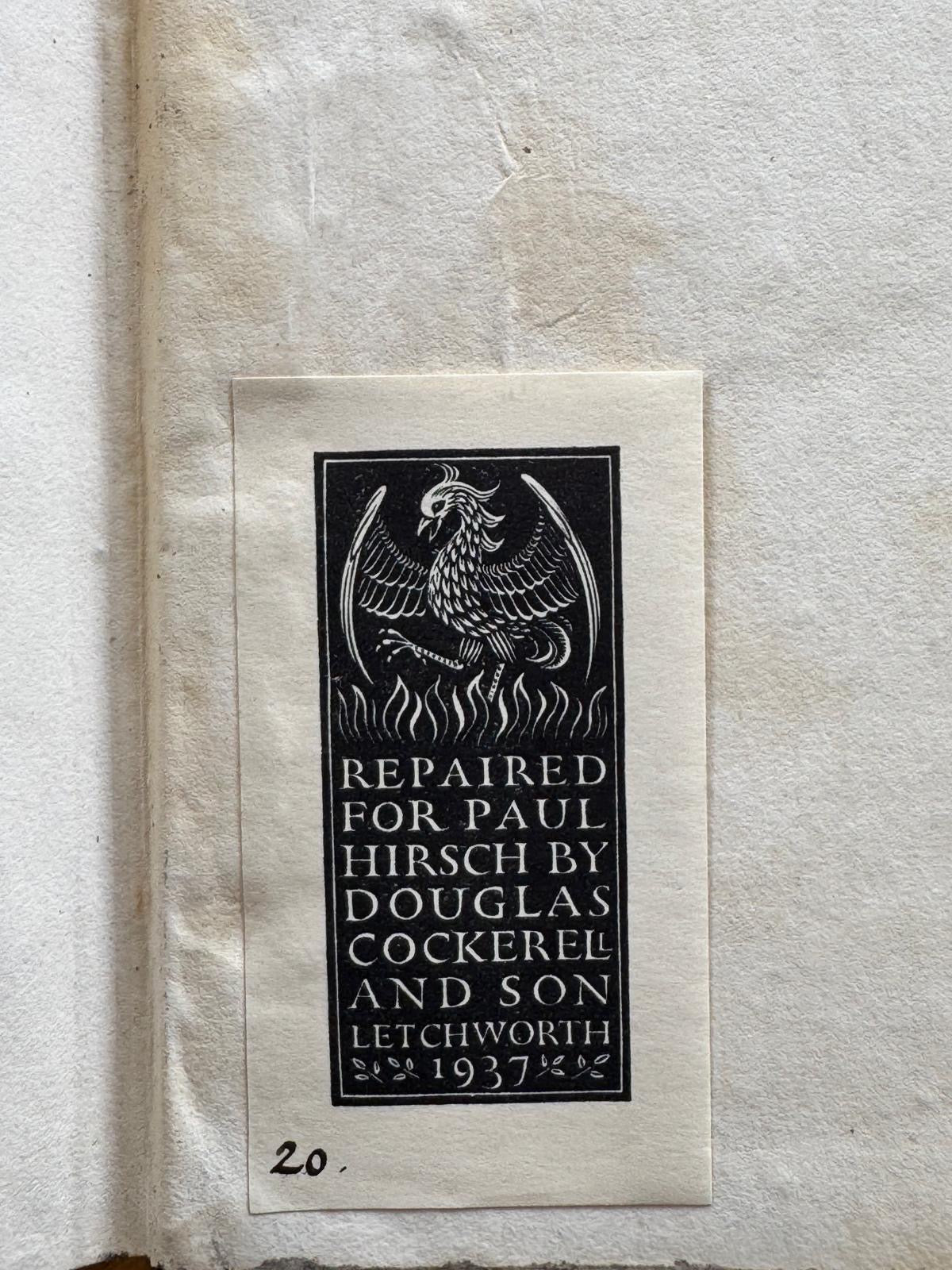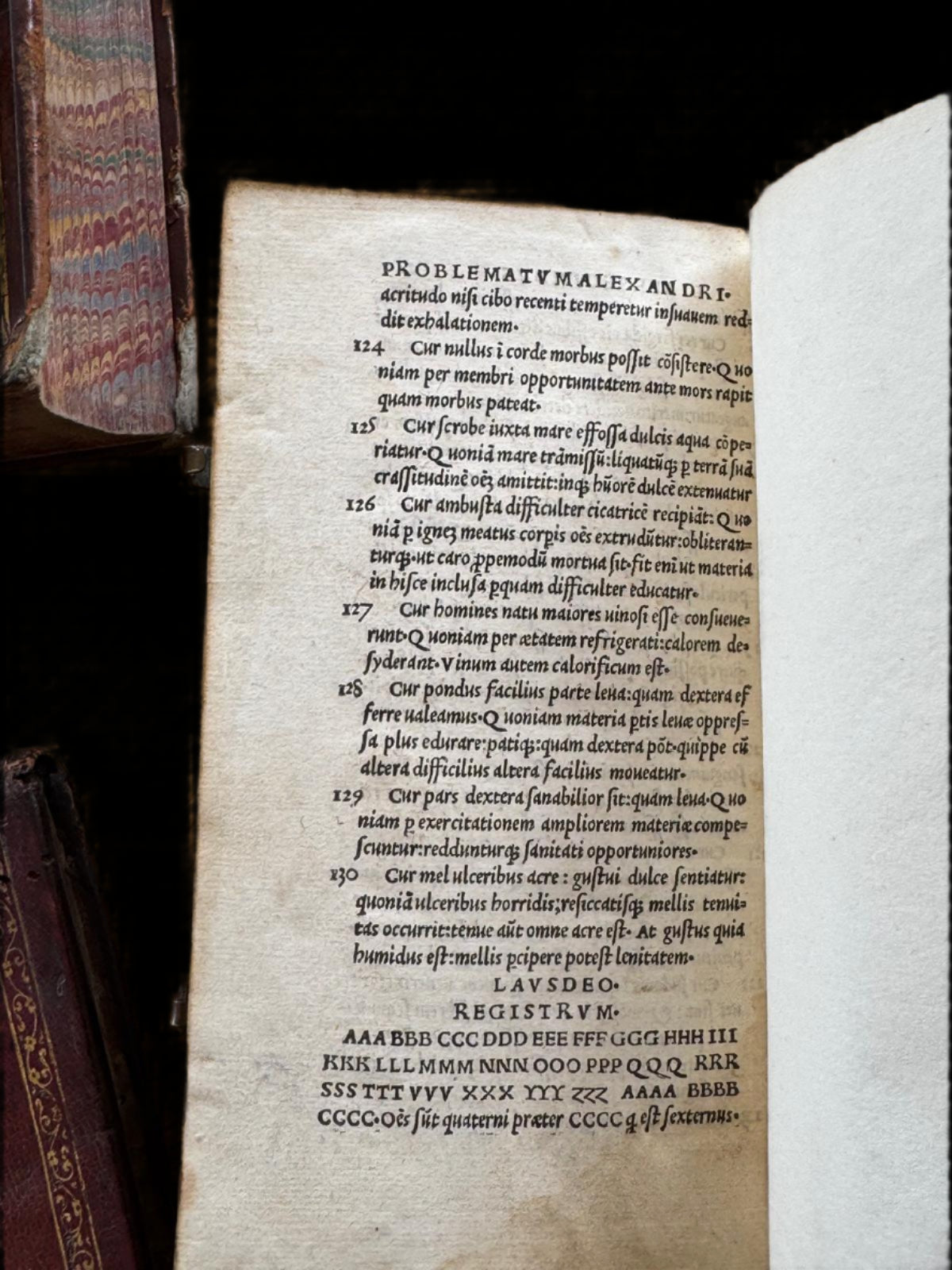De Bry Rare Books
1505 Commentary on Aristotle’s ‘Problemata’ Bound in a Contemporary Bee-Themed Humanist Binding
1505 Commentary on Aristotle’s ‘Problemata’ Bound in a Contemporary Bee-Themed Humanist Binding
Couldn't load pickup availability
1505 Commentary on Aristotle’s ‘Problemata’ Bound in a Contemporary Bee-Themed Humanist Binding
“Problematum Aristotelis sectiones duae de quadraginta”
by Theodorus Gaza after Aristotle
Published in Lyon by Balthazar de Gabiano
Complete text 212pp – in contemporary blind stamped binding, rebacked by Douglas Cockerell in 1937 (with ticket)
Condition - toning to opening leaves, some dampstaining and scattered marks, binding rebacked retaining clasps.
Bees had significant meaning in the Middle ages. As well as representing hard work and cooperation, bees could signify wisdom and the rich or "honeyed" text in a book. Like a hive made up of many individuals, bees also represented the church itself, as each bee could produce its own “honey” – eternal life – through the power of collective prayer. Bees were also thought to reproduce without sex, making them a symbol of the Virgin Mary.
The binding contains a 1505 translation of Aristotle's Problemata by Theodorus Gaza (1410-1475) which had a deep effect on Renaissance thought. The text discusses human and animal behaviours such as “Why do we cry when we laugh”, “Why does music affect emotions so much” and the profound “why do bald men have better eyesight?!”. Contemporary 15th and 16th century readers tried to interpret these ancient questions in the context of human sin at a deeply spiritual time.
Binding: The binding is a contemporary continental binding – possibly Italian – decorated by a blind-stamped floral border with 30 bees in the central panel. I have seen one other similar binding in an Italian private collection also containing a humanist tract (Pausania by Stephanus Niger - 1517).
USTC 154952 (1 copy only)
Total Price £1750 - payment in 2 instalments of £875
